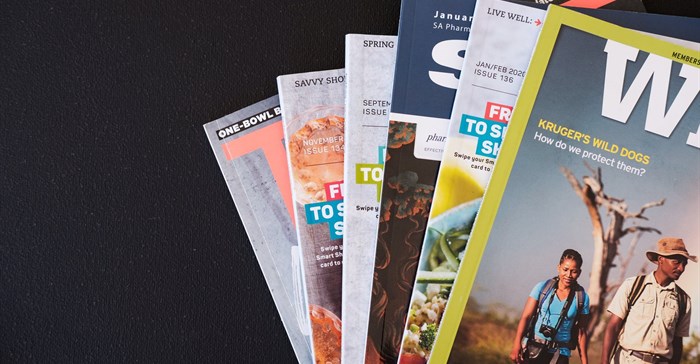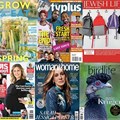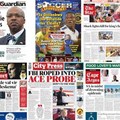Nearly half of South Africans prefer to read printed books and magazines, while around just under half prefer to read news on their computer.

Image supplied. Paper imagery - credit Devin Lester. 49% of South Africans prefer to read printed books and magazines, while around 44% prefer to read news on their computer or device.
This was a finding of the Sides Trend Tracker survey, a biennial survey into consumer preferences and perceptions of print, paper and paper-based packaging that South Africa participated in.
The global study of 10,050 consumers was commissioned by Two Sides and conducted online by independent research company, Toluna in January 2023.
Nationally representative surveys were undertaken in 16 countries, including Argentina (400), Brazil (1,000), Chile (350), South Africa (500), the US (1,000) and Europe, including Austria (500), Belgium (600), Denmark (500), Finland (350), France (1,000), Germany (1,000), Italy (1,000), Norway (350), Sweden (500) and the UK (1,000).
The survey found that in the blended world of paper and digital media, consumers have varied preferences for what they receive electronically or in “hard copy”.
“The survey revealed that there is no one-size-fits-all when it comes to print or digital, and there is a place for both,” says Jane Molony, executive director of the Paper Manufacturers Association of South Africa (PAMSA).
Reading habits - leisure, news
During the Covid-19 pandemic, the shift from paper and print to reading on digital devices, across all categories of communications was real. This included newspapers, magazines, books, catalogues, invoices and statements, and personal health information.
“Despite this surge in online media use, many consumers still value print on paper, especially when reading books and magazines,” says Molony.
Of South African consumers surveyed, 49% prefer to read printed books and magazines, while around 44% prefer to read news on their computer or device. Ironically the same number would be concerned if print newspapers were to disappear.
“This was in line with our own survey that we conducted in 2022, in which 65% of respondents preferred paper over digital when reading for leisure,” adds Molony.
Just less than 25% still get their daily news from newspapers only, while 33% of the participants said they rely on a combination of newspapers and news websites.
Marketing and advertising
While most of the advertising-related statements posed to the respondents yielded a relatively even three-way split across ‘agree, neither agree/disagree, and disagree’, there were some interesting results.
- Around 46% of respondents said they ignore or block online advertisements with the largest proportion (62%) in the 18-24 age category.
- Similarly, 41% said do not ignore print advertisements (e.g. newspapers) against 29% who do, and a third being undecided.
- On paying a premium to remove online ads, 44% disagree with this, while 28% and 27% agreed and were undecided respectively.
According to research conducted by Roots, a South African urban, community-level, quantitative survey, 80% of people look for specials in local and community papers followed by 77% in-store and 70% via online searches.
Print is consumed intentionally, making adverts in print up to four times more impactful and up to two times more effective than social media ads*.
“Such research affirms that print has not been substituted by our laptops and mobile phones, but rather digital advertising complements print, which remains an integral part of the purchasing decision,” notes Molony.
Receipt of personal documents and invoices
When it comes to receiving medical records, tax documents, invoices and statements, the South African preference weighed in favour of electronic communication at 72% against 21%. (10% of respondents had no preference.)
“Respondents in other countries in this survey showed a preference to receiving their medical, tax and billing correspondence in the post. One wonders if this would be different if South Africa had a functioning postal system,” comments Molony.
“We should not interpret this as a dislike of paper-based communication,” notes Molony, adding that 70% of respondents are increasingly concerned that their personal information held electronically is at risk.
On whether they found paper bills and statements, rather than electronic versions, better for record-keeping, 44% agreed, 30% disagreed and 26% were neutral.
Learning and understanding
The survey also sought opinions on the advantages of reading and learning with paper and print. It revealed that more than half (54%) agreed or strongly agreed that “children and students learn more when reading printed rather than digital books and course materials”, compared to just 17% who disagreed or strongly disagreed.
Some 37% agreed or strongly agreed that they “get a better understanding of the story when reading news in print rather than online”, compared to 29% who disagreed or strongly disagreed.
These results reinforce academic studies that have demonstrated the important role that paper and print have in education and in helping people understand complex information, whether that information is in the form of textbooks or news stories. An article in MIT Technology Review states that “the dangers of relying on technology are also particularly pronounced in literacy education and at early grade levels”.
Health and the digital age
The Two Sides survey showed that some 63% of South Africans acknowledged that they spend too much time on devices. Asked whether they are concerned that the overuse of electronic devices could be damaging to their physical health (in the form of eyestrain, sleep deprivation, headaches), 55% agreed or strongly agreed. In the same vein, 45% were concerned about the effect of devices on their mental health (depression, anxiety, concentration).
“Everything in life requires balance and moderation, and we need to choose what works best for a particular application,” says Molony.



































